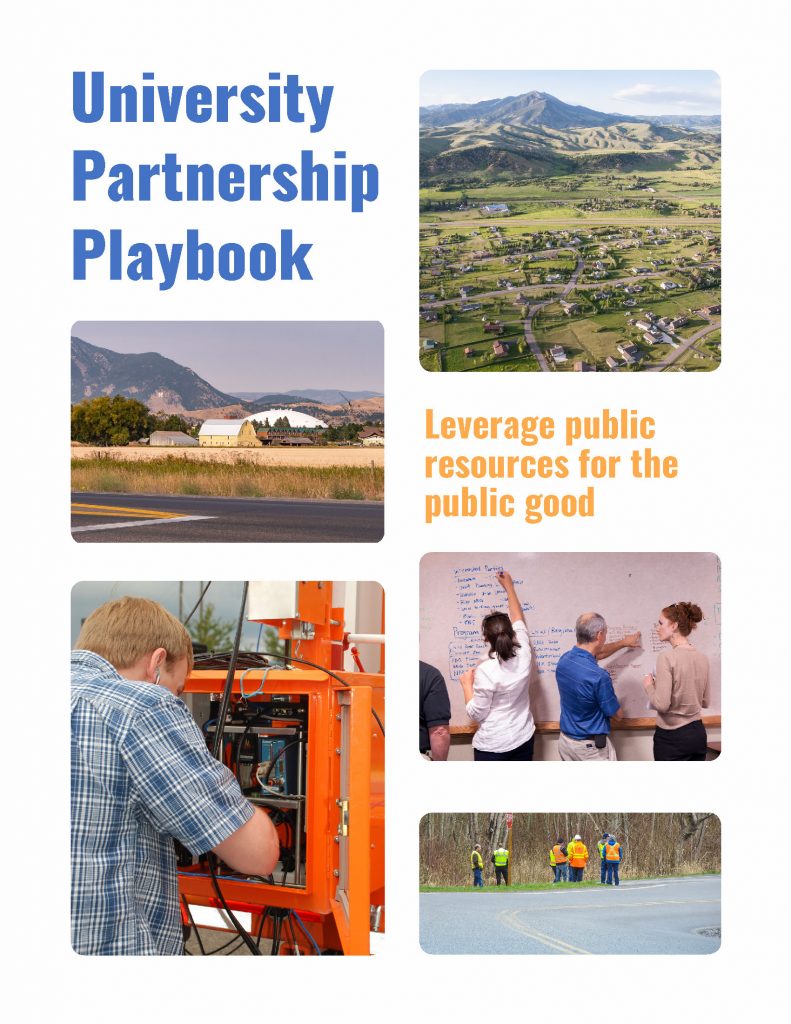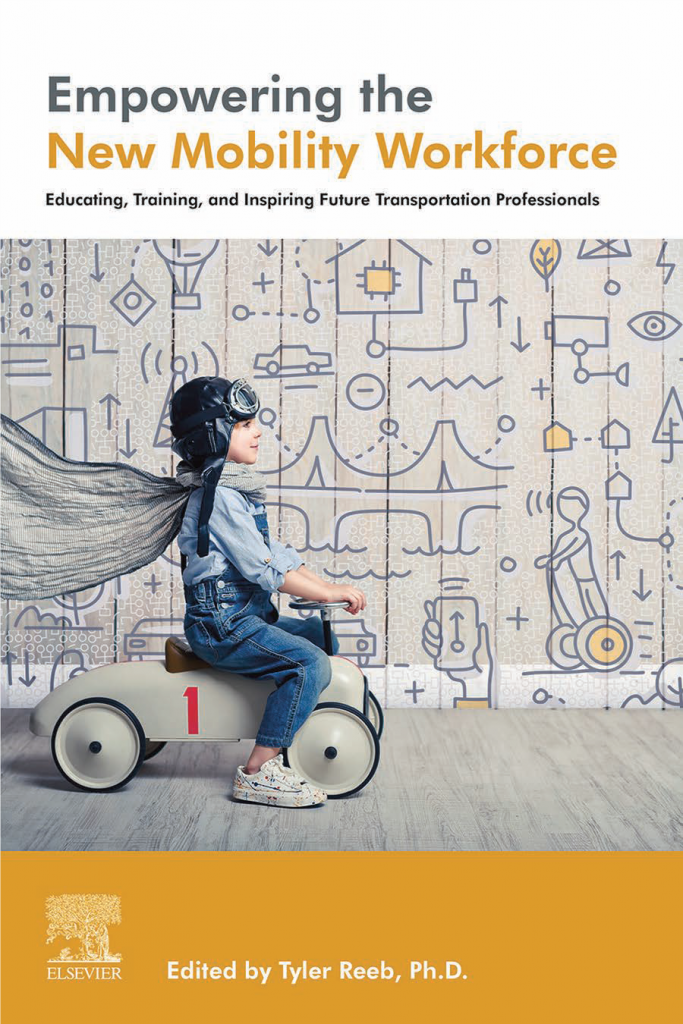CATS Faculty Participant Receives Well-Deserved Recognition
WTI’s Community-engaged and Transformational Scholarship (CATS) program fosters course-based project partnerships between MSU faculty and students and public agencies or other community-based organizations. CATS provides a framework for agencies to harness students’ ideas, creativity, and energy while at the same time offering students the unique opportunity to work for a real client and to produce a […]
Intelligent Transportation Systems (ITS) Professional Capacity Building (PCB) Academic Support By The West Region Transportation Workforce Center (WRTWC)
WRTWC Releases “Playbook” for Launching University-Public Agency Partnerships

The West Region Transportation Workforce Center has released the University Partnership Playbook, a step-by-step guide for creating multi-project collaborations between public agencies and universities. The collaborations offer students hands-on transportation project experience within their university courses and provide agencies with added expertise and capacity for community-based projects. The Playbook uses the Educational Partnerships for Innovation […]
WTI Researchers Contribute Chapter to Mobility Workforce Book

A newly published book on training the next generation of transportation workers at all levels includes a chapter written by two WTI staff members. Empowering the New Mobility Workforce: Educating, Training, and Inspiring Future Transportation Professionals identifies strategies that education, industry, and government leaders can use to facilitate learning and skill development related to emerging […]
On the Road to Safety – Engaging Partners at National Events
Improving safety on rural roadways is a multi-faceted challenge – to make progress, it helps to collaborate with many partners. WTI’s Jaime Sullivan, who is also the Manager of the National Center for Rural Road Safety, has been on the road in recent weeks meeting with key safety partners at national meetings and conferences. At […]
Teachers Translate Transportation Research into Classroom Experiences
At the West Region Transportation Workforce Center (WRTWC), the first Research Experience for Teachers in Innovative Transportation Systems (ITS-RET) program is well underway. Ten middle, high school, and community college faculty participants are conducting multidisciplinary transportation research for six weeks at Montana State University this summer. The research topic areas focus on the unique challenges […]
MSU Website Features NSF Workforce Grant
On November 7, WTI’s new grant from the National Science Foundation was highlighted in a feature article on the Montana State University website. The project will allow WTI’s West Region Transportation Workforce Center, in partnership with MSU’s College of Engineering, to offer a six-week summer program for high school and community college teachers. The program […]
Research Experience for Teachers in Engineering and Computer Science
Workforce Center Announces Webinar for Women in Highway Construction Trades
The West Region Transportation Workforce Center is offering a free, 1.5 hour webinar, on Respectful Workplaces and Health & Safety Empowerment for Women in Highway Construction Trades. It will explore research conducted on the experience of women and minorities in highway construction and the trades. The webinar will describe how the research served to inform pilot […]
WTI Partners with Moscow State University to Improve Transportation Accessibility
The West Region Transportation Workforce Center at WTI and Moscow State University for Transport Engineering (MIIT) in Russia have completed a unique, year-long collaboration designed to make transportation in rural communities more accessible to people with disabilities. In both countries, rural transit agencies struggle to meet accessibility requirements because of limited funding and large service […]
